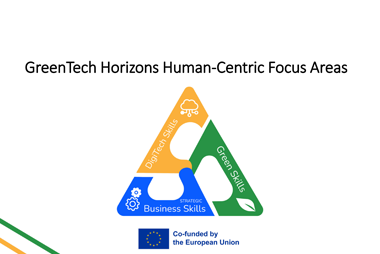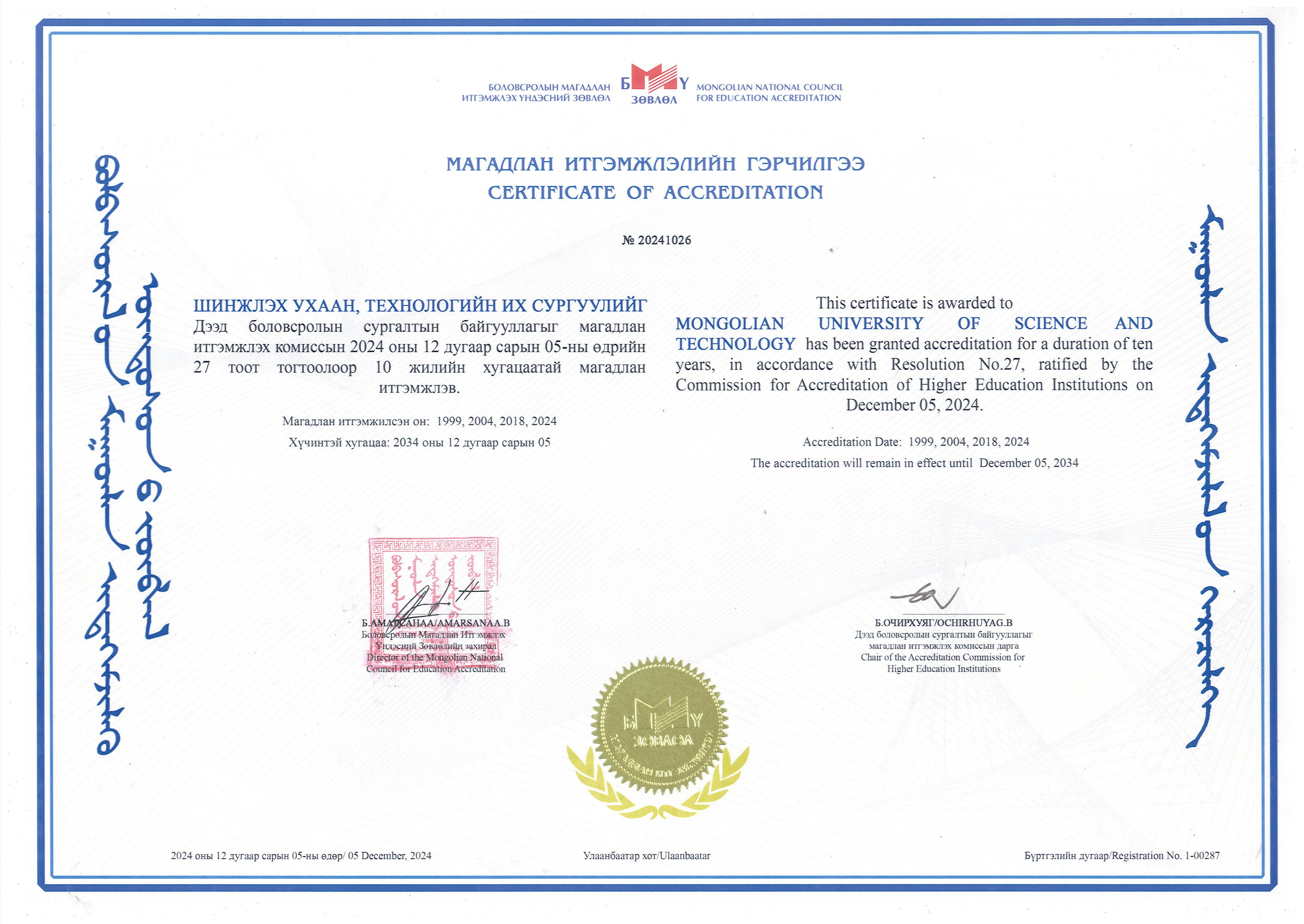link
Worldwide education is becoming a main topic over the past few years. By that time, our university’s foreign cooperation is expanding day by day, in order to meet the demand of international community and society. The success key of developing country is definitely a higher education in engineering sector. In our country, it’s been only a half-decade since graduating engineers and professionals in the field of science and technology. Specialists are pointingout that rapid development in education system of engineeringhas begun since 2000, due to the improvement of foreign collaboration. Today, Mongolian University of Science and Technology (MUST) cooperates with number of universities and colleges from 23 foreign countries. There are various dual degree programs with 18 universities. This is a base of development and growth.


Therefore, Mongolian teachers have been invited to work for the biggest universities of foreign countries. This is a great opportunity for our teaching staff. While those teachers give lectures, they become a bridge to connect MUST to current foreign university and provide a chance to exchange students. Uranchimeg Tudevdagva (ScD), professor of MUST and visiting professor of Technische University Chemnitz of Germany is one of those leading teachers. Also, the number of Mongolian student inTechnische University Chemnitz is increasing annually.

This is a 6th year of International Summer School on Computer science, Computer Engineering and Education Technology which she initiated. Last year, Summer School on Information and Communication Technology was held in Harbin University of Science and Technology (HUST), in Harbin, China. This year, Summer School was held under Prof. Dr. W. Hardtin in July, 2017 in the Chemnitz city, Germany. During the summer school, lecturers of Germany, Mongolia, Russia, China, Pakistan, Litva, India, and Syria were invited and all participants gave a keynote lecture.


Prof. Dr. W.Hardt. TUC, who is the organizer of Summer School, has invested 2 laboratories for study in MUST during his last visit. He is so fond of Mongolian students andhe is a scientist who has been investing in our technology sector.

Prof. Dr. W. Hardt, TUC
In the beginning of the Summer School, participants visited Technische University Chemnitz and research institutions. In Germany, institutions of science and technology are funded by the government. So, researchers are able to concentrate only on their study and spend all their time and efforton it. The advantage of scientists in Germany is it takes a short time to apply their study in manufacturing, but our researchers work takes a long time to get into industry. Hence, researchers from Germany are very responsible for their task. In the other side, it’s totally different for researchers in our country. Mongolian government doesn’t support them and their salary is low. Besides, possibility of examining the research result is very limited due to the shortage of laboratory. So, they still have difficulty on turning their work into real products. Although, Mongolia scientists have great skill and knowledge as well as any other countries’ researchers. Industrialized countries have a lot of advantages. For example, at least, they have less concern on product sales. However, the most important matter is the industries are manufacturing high-quality products based on the research results.

The main concept is technological development. So on, there were studies mostly about development and improvement of technology during the Summer School. In case of Mongolia, if our government investinscientificinstitutions, it could be the foundation of becoming an industrialized nation. In last decade, we are struggling around the development of domestic manufacture, but it is true that we still not making final product. These researchers’ study is telling us the technological innovation is needed in Mongolia.

Capacity building in the field of higher education STRAND 2

MUST receives its fourth accreditation certificate

4 students awarded “Tavan Bogd” Group’s full tuition fee scholarship

An agreement signed with the best universities of the United States to implement mutually beneficial programs

MUST will participate in the project "Glocal University 30" financed by the Government of the Republic of Korea